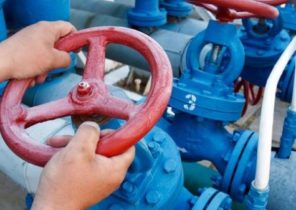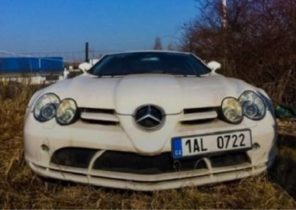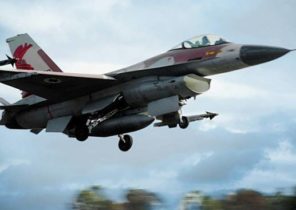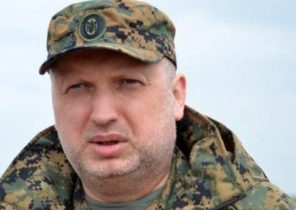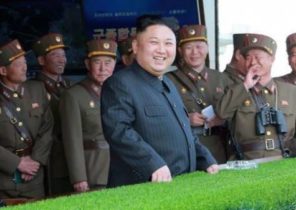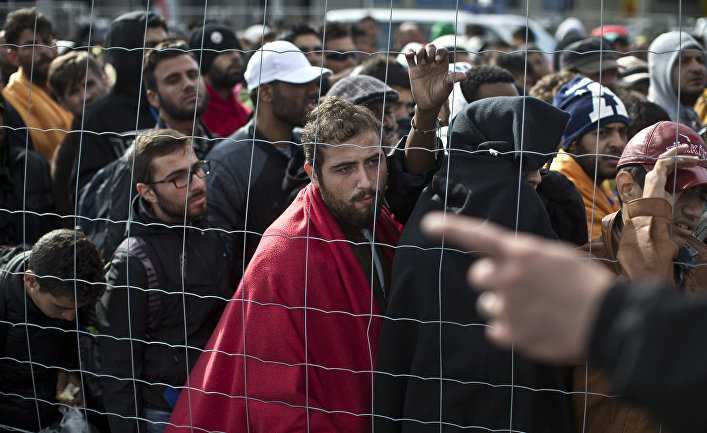
The Minister of foreign Affairs of Austria Sebastian Kurtz (Sebastian Kurz) (30) criticizes the immigration policy of the Chancellor and expressed willingness to ease sanctions against Russia.
SPIEGEL: Mr. Kurtz, head of the CSU Horst Seehofer (Horst Seehofer) after the terrorist attack in Berlin demanded “to rethink and build the entire migration and security policy”. Do you agree with this?
Kurtz: First, we need to remember the victims and to do everything possible to support relatives of the victims. In addition, it is also about how we will be able in the future to ensure maximum safety. I deliberately say “maximum” because absolute safety is never.
SPIEGEL: so — Seehofer right?
Kurtz: I’m not interfering in the domestic debate. But I can tell You my opinion: we need to deal with this new form of threat. And it would be wrong to speak only about terrorism. Behind this political Islamism as a base. This problem can not be underestimated, it should be discussed openly. The counter-radicalization will be one of the main points of my activity on a post of the Chairman of the OSCE, because it applies to all. We need to deal with the financing of the Islamists is exactly the same as with the Salafist shares for the dissemination of the Koran. So trying to build a parallel society that denies our way of life in Europe and struggling with it, eventually and with the help of terror.
SPIEGEL: is this the upper limit for refugees, as You have already introduced in Austria?
Kurtz: first of all, we are talking about the security of the European external borders. If we can’t control who actually enters the EU, and who lives here, it is a security risk. It would be fatal to equate refugees to terror. But on the other hand, it would be a mistake to think that if someone comes to us as a refugee, we can be sure that he will never become a criminal or a terrorist. I have a year and a half ago, warned that the routes that refugees can also be used by terrorists. Unfortunately, it has been confirmed.
SPIEGEL: the Government, which You enter, along with German Chancellor Angela Merkel in the first weekend of September 2015 was opened by the Austrian and German border for tens of thousands of refugees from Hungary.
Kurtz: My position has always been clear. I considered this policy of inviting the refugees incorrect. I’m one of the few members of the government who did not go to Vienna station, to welcome refugees. For me, it is harshly criticized, but I was convinced that if you just dismiss, then the problem will not become smaller, but rather will grow.
SPIEGEL: You recorded then Your doubts during conversations with the German government?
Kurtz: I’ve always been of this opinion. I’m still in the August 2015, is one of the first involved the introduction of border controls and quick clearance. It is true that my line did not attract the majority, even in my own Austrian people’s party. Then the policy was carried out largely media and non-governmental organizations. But many people wanted to do everything as better. The closure of the Western Balkan route, which we have organized here from Vienna, a year ago, very criticized.
SPIEGEL: You mean Chancellor Angela Merkel, who said that the closing of the Balkan route has not solved the problem.
Kurtz: I was criticized by my colleagues in the government, Germany and Brussels, I do not want to talk. And now I hear that almost all agree.
SPIEGEL: Frau Merkel thanked You for the closing of the Balkan route?
Kurtz: this is not about gratitude, but to now continue on the right path. And there is still much to do.
SPIEGEL: How do You want in the future to protect the EU’s external borders?
Kurtz: We often argue about is the defense of the borders, despite the fact that the question should be, who we want to take to Europe. Our problem is that we attract people. We forget not only the protection of borders, we are not doing anything against the effect of tightening the funnel, which we call.
SPIEGEL: does this illusion of safety? While there is great economic and social temptation, the same will continue and people’s attempts with smugglers to get to Europe.
Kurtz: it is Necessary to distinguish between individuals who are able with the help of smugglers to reach the heart of Europe, and 15 thousands of people in 2015 daily come to us. The question is, if we support a system where more and more people are going on the road and in the end even paid trains and ferries so people will come to us.
SPIEGEL: What do You suggest?
Kurtz: We in Europe need an entirely new system of asylum. On the one hand, we can no longer accept as many people as in the past two years. On the other hand, in the future we should directly choose in areas of military action, who legally could arrive in Europe. On the contrary, it should be: who is going to Europe illegally, will be detained at external borders secured and sent back. Doing this successfully as Australia or Spain. And if this is not possible, they will be transferred to another safe place outside of Europe. There they will have protection, but not the best life that they expected in Europe.
SPIEGEL: You want to destroy the right to asylum?
Kurtz: No. But in the past two years among the refugees were relatively few of those who were persecuted for political reasons. Currently, we have a problem that people from the military regions seeking protection in neighboring countries and decided to go to Germany, Austria or Sweden. In 2015 in the neighboring country of Slovenia was filed less than one thousand applications for asylum, and we have 90 thousand. Therefore, we cannot support a system in which you can choose in which European country can apply for asylum.
SPIEGEL: How to deal with countries, especially in North Africa, who do not want to take back its nationals expelled from Europe?
Kurtz: We need to increase pressure. Many countries are not interested in the fact that we have sent their citizens. It is the economic factor. Their return to the country there are a portion of the proceeds. The EU should therefore be ready to act on the principle of “Less-for-less”. That means countries that are not ready to take back their deported citizens should be curtailed funds for cooperation in development.
SPIEGEL: will Not get You in a vicious circle? If you cut back on development assistance, it will worsen the conditions, so more refugees will gather in the path.
Kurtz: I see it differently. The danger of this should lead to a massive rethinking. Who says these countries will not be willing to accept? We haven’t even attempted to try! If we do not fight for our interests, we should not be surprised that our negotiating partners are not ready to pick up its citizens.
SPIEGEL: the Protection of external borders, care, close from the homeland, these requirements form part of the agreement on refugees to Turkey. Why You criticized the deal Merkel with Turkey?
Kurtz: I warned only positive not to fall into dependence on Turkey. Were politicians, which, however, was opposed to protect our external borders, because they thought that you can not use force, violence to act against the refugees. At the same time they were willing to pay for it Turkey. This hypocrisy. This is nothing more mentally, if instead of Greek, Turkish police stop refugee. So I’m not against cooperating with Turkey or with other countries. I just to we what you can do yourself, for yourself and done.
SPIEGEL: the Other members of the EU want cooperation with Turkey should be strengthened. In any case, You with Your demands to stop the negotiations with Turkey on accession, was isolated.
Kurtz: I think it’s fair the position of many EU politicians. Most tell me eye to eye:”Turkey will never join the EU, and we don’t want it”. At the same time it is necessary to continue negotiations with Turkey, if we want to get her entry tomorrow. I don’t see Turkey in the EU. In recent years, Turkey has increasingly moved away from Europe. In the past months, this development was even more dramatic.
SPIEGEL: another country that is increasingly moving away from democracy, You are treated more gently — with Russia.
Kurtz: as for Russia, here we are not talking about accession to the EU, and the attitude of an important neighbor. And just to be clear: Russia is against sanctions, not negotiations on accession to the EU. We have no right to forget that Russia annexed the Crimea. But only to deal with the issue of guilt, this is not enough. Since the crisis in Ukraine again block mentality, which we thought disappeared with the end of the cold war.So my first trip as OSCE Chairman at the beginning of the year will be in Eastern Ukraine, in Moscow and in Kiev. In relations with Russia we have to change the trend.
SPIEGEL: the Weakening of EU sanctions against Moscow are also included here?
Kurtz: I think the suggestion of Frank-Walter Steinmeier, right, to make sanctions more flexible. We need a system step by step. For every positive development, we should step by step to ease the sanctions.
SPIEGEL: For this requirement from the SPD, You will receive applause, but not from the office of the Chancellor.
Kurtz: this is not about from whom I will receive applause or criticism. The truth, unfortunately, is that the peace process is not progressing. Therefore, we must once again regain trust in Europe, and sanctions to move away from a system of fines.
SPIEGEL: right populist parties are campaigning for its proximity to Putin. If You want to join the competition with the Austrian freedom party, Alternative for Germany or the National front?
Kurtz: No. My goal is not to agitate some intimacy, but to find a positive way out of this crisis.
